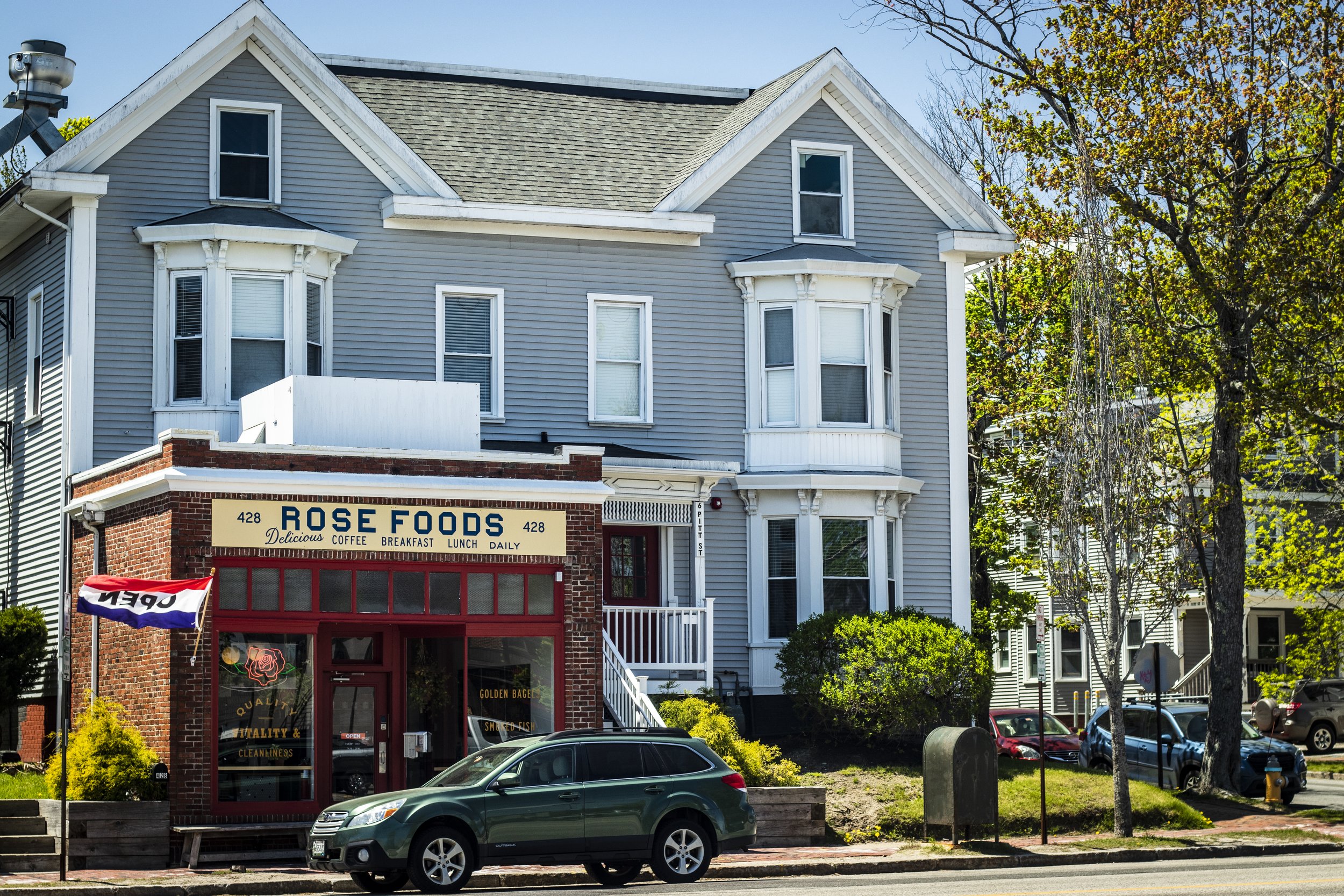ReCode Recommendations (Some Adoption)
The City of Portland has been in the process of rewriting its zoning code since 2017. Portland's city staff has now released a complete proposal for these changes. Their goal is to pass these changes into law in Fall of 2024. Though updates to our zoning code are needed and we are supportive of some of the proposed changes, we think that the current proposal is insufficient to address the needs of our city today and into the future. The current proposal does not adequately remove barriers to addressing our housing crisis and building the walkable, bikeable, transit-accessible neighborhoods that will make our city a pleasant and environmentally sustainable place to live.
We have assembled four amendments that will allow for for more middle-density, mixed-use neighborhoods that are pleasant to live in and move around. These changes make housing more affordable, encourage equity, protect the environment, make the administration of our city services more resilient and efficient, and bring communities closer together. All of these outcomes are goals laid out in Portland’s Comprehensive Plan and One Climate Future Plan. These amendments will not stop people from building the types of buildings they build today, they will just give people more options of neighborhoods to build and live in. We are currently in a housing affordability crisis with an environmental crisis on the horizon; the least we can do is allow ourselves to build the kind of city that can rise to face these challenges.
September 2024 Update!
Portland's planning staff have incorporated feedback and have created a "Final Draft" of the ReCode proposal. It is not too late to make changes. This proposal will go before a planning board workshop on Tuesday, September 17th and a final planning board vote on Tuesday, September 24th. The planning board has the option of amending this draft. After planning board approval, ReCode will go before the City Council for at least two meetings in October or November.
Overall, we feel this draft is an improvement but we still feel like this version should do much more to meet the goals of housing, transit, complete neighborhoods, and simplicity. Read our analysis of and recommendations for this latest draft!
Transit
To get bus routes with frequencies of 15 minutes or less we need the density to support it. Developing dense housing near transit lines, often called Transit Oriented Development, will give us the ridership and tax revenue we need to get high quality transit for all of Portland. Portland's Comprehensive Plan and One Climate Future Plan identify key corridors that have transit today and were identified as places for Transit Oriented Development. Unfortunately, the newly proposed Transit Oriented Development zone category from the city staff's current ReCode proposal are not applied to these corridors at all. Instead, they are applied to just three specific properties in the whole city. This is spot zoning for specific projects, it is not in line with the comprehensive plan, and it is not nearly enough Transit Oriented Development to give Portland the high quality, frequent public transit it needs.
We are advocating for applying the new Transit Oriented Development Zone category to all of the corridors that the City has already identified in Portland's Comprehensive Plan.
Housing
Portland made significant progress in allowing for more housing options by implementing state law LD2003. This allows for up to four units on all lots on the mainland. However, barriers to building denser walkable neighborhoods are still in place:
Bonuses to height and setback minimums for affordable housing do not apply in residential zones
Setbacks, minimum lot sizes, density limits, and height limits make it difficult to build middle-density housing
The height per story used to calculate height limits doesn't allow for the insulation needed for modern, green buildings
We are advocating for relaxing some of these barriers to bring off-peninsula neighborhoods in line with some of the standards of on-peninsula residential neighborhoods like Munjoy Hill, Parkside, and the West End
Complete Neighborhoods
To build walkable neighborhoods where residents "have access to the basic necessities of daily life - high quality and affordable housing, schools and other civic functions, food, open space, other amenities and services - within a walkable, bikeable distance" we need to allow for neighborhood-scale mixture of uses within residential areas. Building these sorts of neighborhoods is a goal of Portland's Comprehensive Plan, which is quoted above. It is also a part of Portland's One Climate Future Plan and a goal of ReCode. Unfortunately, the city staff's current ReCode proposal does very little to expand neighborhood mixed use. The currently proposed changes will only effect a small handful of properties the majority of which are mixed-use already.
We are advocating for allowing small-scale, low-impact uses like shops, restaurants, and places of assembly to be allowed in all residential zones.
Simplicity
To build more housing we need to ensure that our city's approval process can keep up. Under city staff's current ReCode proposal only buildings with four units or fewer can go through the faster, minor site plan review process. Any other building will be considered a major site plan whether it is 5 units or 500 units. We can also make it easier to determine if a project is allowed by zoning by making our zoning code simpler. Even with the currently proposed changes Portland has seven residential zones. Combining zones could simplify things for builders and reviewers alike. Lastly, the current proposal removes the option of locking in current zoning for a phased project. This makes it risky and complicated to build a project because the rules may change during the project.
We are advocating for allowing more projects to go through minor site plan review based on square footage and not units, combining residential zones, combining low-impact industrial and mixed-use zones, and preserving the ability to lock in zoning for a multi-phased project.



